Toyota And Daimler To Start Fuel Cell JV? Not Exactly
Toyota definitely keeps us on our toes. Last week, the tete-a-tete between Toyota and Tesla had the world speculating about an electric push by the world’s largest auto maker. That was last week. This week, it’s hydrogen.
Toyota: $50k Hydrogen Sedan By 2015
Lithium-ion batteries aren’t the only automotive cleantech that appears to be getting cheaper. Toyota’s head of advanced autos, Yoshihiko Masuda, tells Bloomberg that the Japanese automaker has cut the cost of hydrogen fuel cell vehicles (FCVs) by 90 percent in the last five years or so. Mid-decade, Toyota’s per-car estimates for FCVs ran near a million dollars per car. With costs now closer to the $100k mark, Toyota says it plans to cut that number in half by 2015. If they can make that happen, Masuda says, a $50k hydrogen FCV will be on like Donkey Kong.
BMW's Hydrogen Hybrid
Which drive train will own the future? ICE, hydrogen, hybrid? BMW bets it will be all of the above. Autocar reports that BMW has mated a regular ICE with a fuel cell, electricity-storing supercapacitors and an electrically driven rear-axle. The reasoning behind this new type of hybrid is that BMW’s engineers believe that this power train will make the cars capable of switching to an emissions free propulsion system and switch back to ICE when needed. Now I know what you’re thinking at this point. “Cammy, aside from being the worst new writer of the year, why would anyone want to buy a car like this?” Well, the answer lies in Europe.
GM Exhumes Its Hydrogen Dreams
It’s been said many a time that the problem with hydrogen as an energy storage system for cars is that it is always the future and never the present of transportation. Indeed, hydrogen has nearly fallen of the alt-fuel radar in recent years, as present-techs like hybrid and even electric drive have matured. But the dream is not dead. The great hydrogen hope now lives with General Motors, in the form of a new, lighter-weight fuel cell which GM says will be production-ready by 2015. The new cell is 225 lbs lighter and uses one-third less platinum than the systems being tested in GM’s 30-month “Project Driveway” Equinox fuel-cell vehicles (FCVs). That leaves more platinum for trimming Escalades, and has GM thinking that real-life series production of FCVs could be possible. GM’s Charles Freese tells Automotive News [sub]:
Our learning from Project Driveway has been tremendous. The 30 months we committed to the demonstration are winding down. But we will keep upgrades of these vehicles running and will continue learning from them while we focus efforts on the production-intent program for 2015. We will continue to use the Project Driveway fleet strategically to advance fuel cell technology, hydrogen infrastructure and GM’s vehicle electrification goals
Honda Hearts Hydrogen: Let The Sunshine In!
Just when you thought hydrogen was dead, Honda comes up with a system that allows you to make homemade hydrogen, using nothing but free sunshine. In the grand tradition of hydrogen cars, the sunny technology is just not quite there yet.
London Olympics High On Hydrogen
The London 2012 Olympics promise to be a “low Carbon” affair. The London games will have everything from a low carbon Olympic flame to official energy provider EDF providing 24MW of energy from renewable resources. Even the official Olympic fleet is getting in on the “low carbon” act. What else is there to do? Right: The humble British Black Cab is getting the “low carbon” treatment. It’s coming from a source that had already been written off: Hydrogen.
Research Fund Authorization Heralds Hydrogen's Return… At Some Point
The House has authorized a new package of industry aid in the form of research and development funds for advanced technology vehicles. H.R. 3246 still needs to be funded, but authorization is for up to $2.9b over the next five years. The AP reports that the bill would fund research on “technologies such as batteries for hybrid vehicles, electric cars, hydrogen fuel cells and infrastructure for the electric grid.” Notice something strange there? President Obama had previously moved to cut funding of hydrogen research, a move that DOE spokesfolks at the time explained by gently reminding that “the probability of deploying hydrogen fuel-cell vehicles in the next 10 to 20 years is low.”
Department Of Energy: Hydrogen Still The Future
Same as it ever was. Green Car Congress covers a DOE report (pdf) to the U.S. Congress on its $1.2b Hydrogen fuel cell development caucus, and the conclusion is clear: keep waiting. The DOE had harbored a shockingly naive hope that OEMs would be able to field 100k fuel cell vehicles by 2010, but the new report seems pretty clear on the chances of that happening. According to the report, “a 2008 independent study estimated that the high-volume manufacturing cost of automotive fuel cell systems (using current technology and assuming 500,000 units per year) would be $73/kW, which equates to almost $6000 for an 80-kW system. This current technology would be more than twice as expensive as internal combustion engine systems. And, based on the highest demonstrated durability to date, fuel cell systems would have a lifespan of approximately 1900 hours, which equates to about 57,000 miles and is still substantially lower than today’s estimated vehicular lifespan of 150,000 miles.” Sound familiar?
Fuel Cell Pols Gone Bad Vol. 1
There’s a piece in the Sunday NY Times automotive section (we get it a day early) about a New York congressman, Eric Massa, who drove a Chevy Equinox fuel-cell vehicle from Corning, New York (his hometown) to DC as a demonstration of personal greenness, forward thinking and the potential of hydrogen-fueled vehicles. How is that possible; it’s 280 miles form Corning to DC and there are no hydrogen stations en route? Turns out greenmeister Massa actually drove two Equinoxes. One he drove from Corning to Harrisburg, Pennsylvania, where he changed horses to the fully fueled second Equinox. How is that possible, since you’d think a fuel-cell Equinox would use a certain amount of hydrogen just getting to Harrisburg? Well, it turns out GM towed the Harrisburg Equinox– and also the Corning Equinox, which had to arrive there fully fueled– with a pair of hybrid Tahoes. So Massa actually used four cars and a fair amount of fuel, and produced a goodly amount of CO2, to get to Washington while “burning no fuel and producing zero emissions.”
Hydrogen Industry Wants $1.17b Of Your Money (With More To Come)
Wild-Ass Rumor Of The Day: Mazda RX-9 Partially Hydrogenated?
China To Drop Hydrogen Bomb On LA
Guess who will be at the 2008 Los Angeles auto show, November 21-30? A Volkswagen Passat. But it won’t be just any Passat. It will be a Passat produced by Shanghai VW. As if this is not shocking enough: The thing will be powered by a hydrogen fuel-cell. Shanghai Security News humbly reports that this might be the “first China-made new-energy car model of the Volkswagen brand to be displayed at an auto show.” It for sure is the first Made-in-China VeeDub ever to enter a US show. And it runs on hydrogen. How about that. The powertrain was jointly developed between SVW’s SAIC, Tongji University and Shanghai Shen-Li High Tech Co., Ltd. The car, veedubbed “Lingyu,” will reach a top speed of 150 km/h and should be good for more than 300 km at one hydrogen charging, albeit “with further innovation and maximization,” say the Security News via Gasgoo. SVW had built 500 fuel-cell hybrid sedans already for the green Olympic fleet, and wants to mass-produce the hydrogen fuel-cell Lingyu by early 2010. But will it sell?
Ask the Best and Brightest: Do Hydrogen Injection Systems Work?
All Aboard For The Magical Mystery Hydrogen Tour
U.S. Car Market: All Hybrids All The Time By 2020?
Nissan Hybrid, EV and FCV Systems "Previewed"
$3,200,000,000,000 for an Oil-Free Future
Well, you can't accuse either side of the political spectrum of hanging around while gas prices have opened-up the debate on America's energy policy, or lack thereof. While President Bush has removed the executive order against off-shore drilling (over to you congress), former Vice President Al Gore has asked Americans to help foot the bill for a ten-year, three trillion dollar "moon shot" effort to switch to "clean" electricity from solar, wind and geothermal power. While this is an extremely inconvenient solution for coal mining states that leaves pro-nuclear partisans in the cold, I mention Al's plan here because it's implicit that the transition would enable a nation of plug-in hybrids or pure EVs. Hey, what about hydrogen? Big Al made no mention of water vaporware. But The Boston Herald reports that a group of scientists have priced-out a U.S. switch to hydrogen-powered vehicles at $200b. No mention was made of the energy source for the fuel, but apparently the the Committee on Assessment of Resource Needs for Fuel Cell and Hydrogen Technologies have bigger fish to fry (deep freeze?). "The cost of platinum is approximately 57 percent of the fuel-cell stack costs and represents the greatest challenge to further cost reductions," the study said. "Future platinum supply is a critical issue in forward projections of fuel-cell costs." If it's not one thing, it's another.



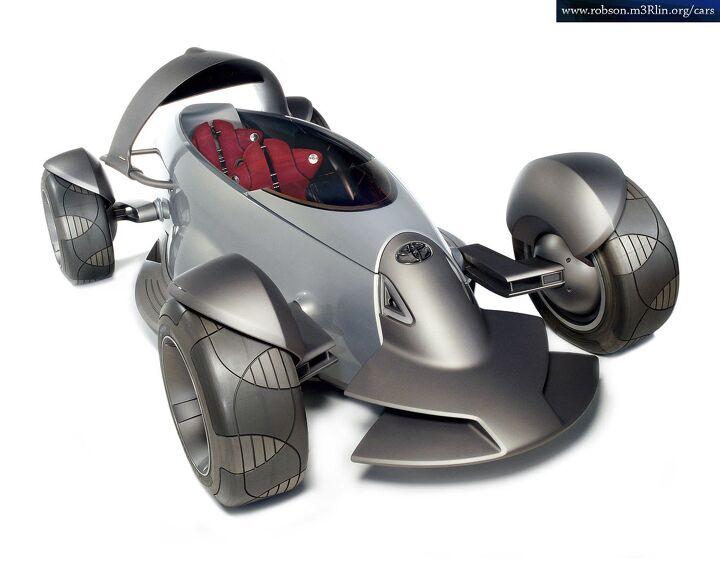
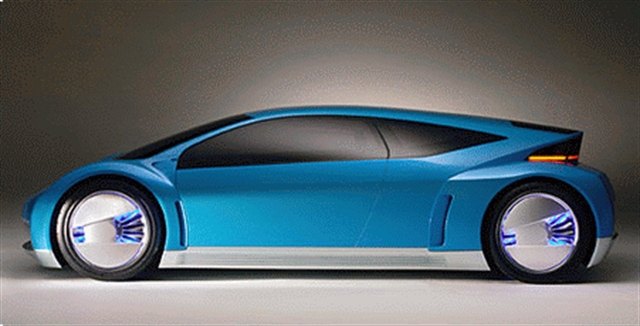
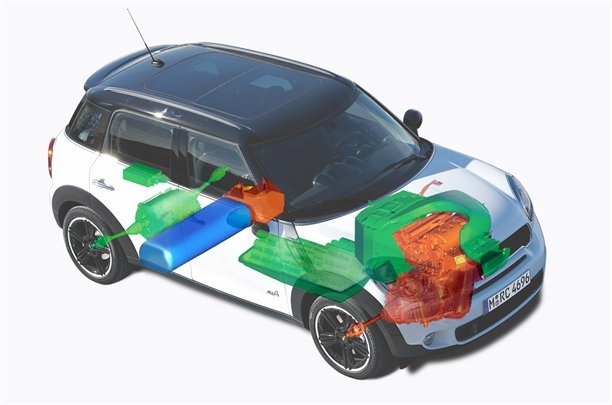
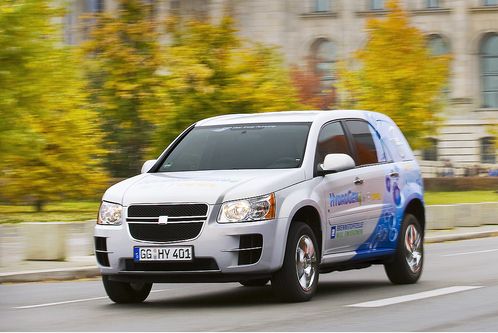


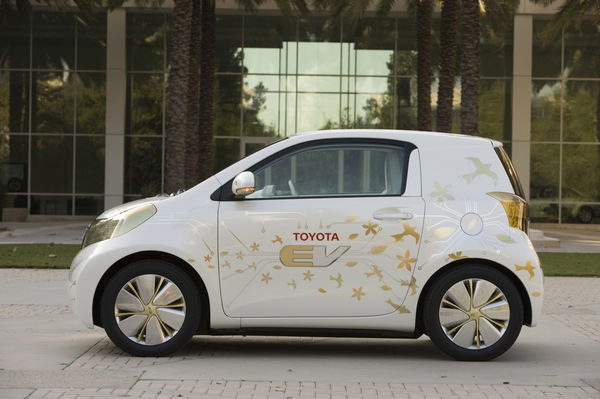
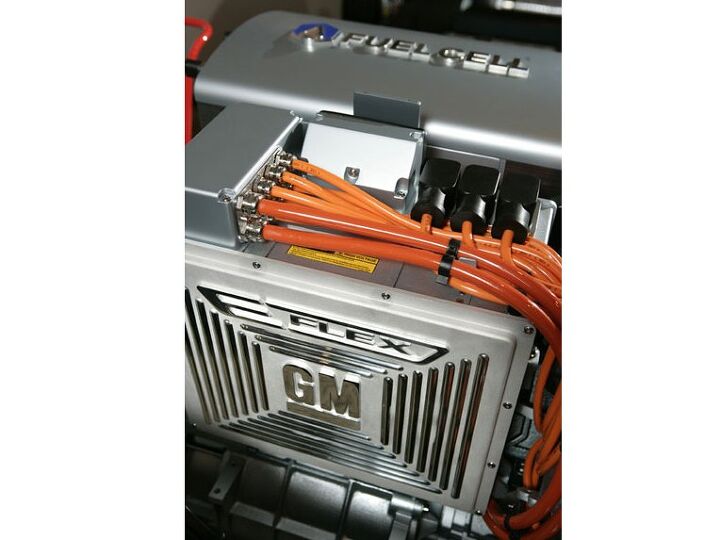

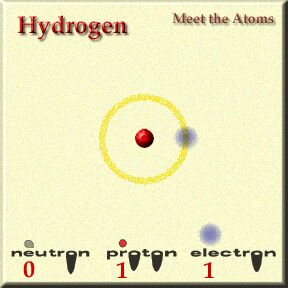

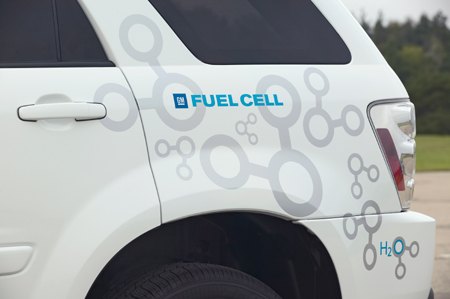

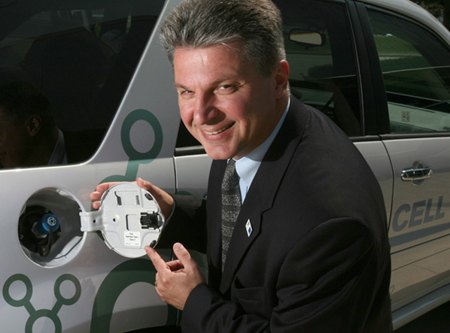



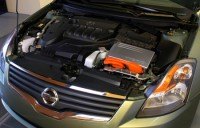
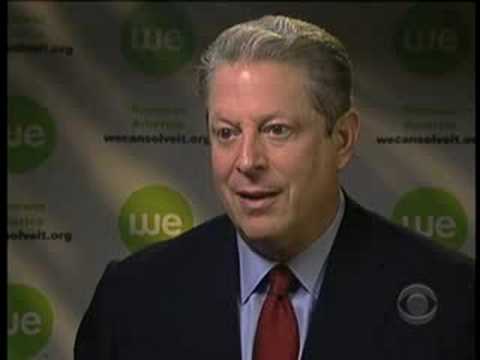
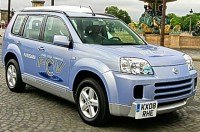
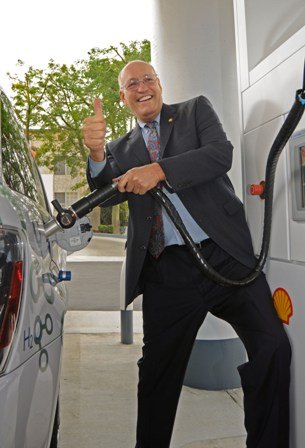
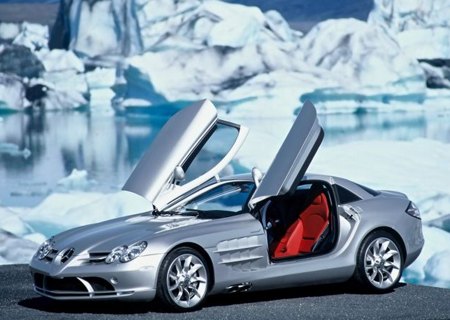
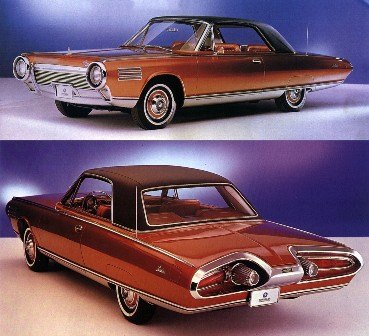












Recent Comments